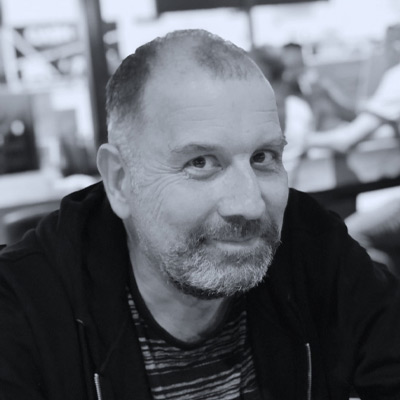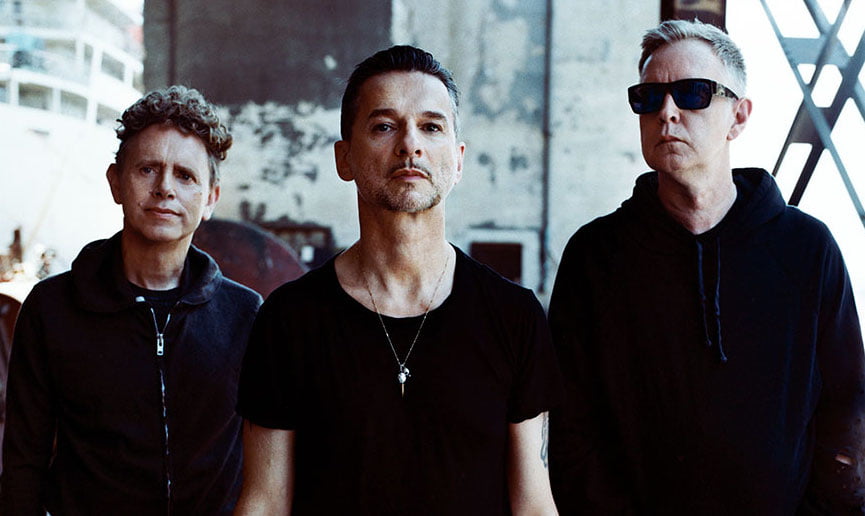 After more than 40 years in Depeche Mode, the sad passing of Andy Fletcher in 2022 left the question he was most often asked largely unanswered: what exactly did he do? Well, it turns out that Fletch might well have been the one member who kept the band on an electronic pop path…
After more than 40 years in Depeche Mode, the sad passing of Andy Fletcher in 2022 left the question he was most often asked largely unanswered: what exactly did he do? Well, it turns out that Fletch might well have been the one member who kept the band on an electronic pop path…
There’s a moment in a short video interview with Andy Fletcher from 1993, just before Depeche Mode’s famous Crystal Palace gig, when his face drops as he gets asked that question.
The journalist has already called Fletcher “another one of the unsung heroes of Depeche Mode”, to which Andy replies, laughing, “Well how many are there?”
But then the interviewer – who genuinely doesn’t seem to know who Andy is – follows it up with the question, and one that Fletch already appears to be weary and wary of, even at this relatively early point in his career.
“Tell me about your role in Depeche Mode,” the reporter asks, and then adds a little too directly: “What… what is it?”
Andy pauses uncomfortably, but then gamely trots out, “As most people know we manage ourselves, so I like to take care of that side of things, really.”
And this would have been fine had he just left it at that. But just like so many other occasions before and since, the ‘Fletch’ side of Andy then comes to the fore – all brutal honesty, with a smattering of dark humour and a twinkle in the eye.
So when Andy is then asked, “Is it a difficult role?”, he responds with, “Not really. We have lots of people to help us out.”
It’s another one to add to that list of self-deprecating Fletch quotes. Everything from an interview in Making Music magazine in June 1987, when he said: “We all have different roles. Al [Alan Wilder]’s the main musician, and I take a back seat generally. Usually on the sofa” to the most famous: “Martin’s the songwriter, Alan’s the good musician, Dave’s the vocalist… and I bum around” quote from the Depeche film, 101.
Fletch was asked the same question relentlessly, yet he rarely defended himself – although he did later clarify to Consequence Of Sound that the 101 quote was more about his famous dry humour (“I definitely said that tongue in cheek”). More often than not, though, it’s been up to his bandmates to defend his role.
“People who think Fletch doesn’t do anything are sorely mistaken,” Martin Gore has said. “Nobody should think that he doesn’t pull his weight. He absolutely does.”
- Read more: Top 40 Depeche Mode songs
- Read more: Album Spotlight: Depeche Mode – Ultra
And what Fletch did in Depeche Mode perhaps goes further than most of us might realise. Reviewing everything that he talked about in 40+ years of interviews unearths more depth and subtlety to his part in the band.
There was, of course, the role of mitigator that was talked about in the lovely tributes after Fletch’s untimely death in May 2022 – he really was the necessary problem solver and compromise builder between the sometimes battling egos of Martin Gore and Dave Gahan. But there’s more…
For a start…
Firstly, there’s the small fact that he was the only founding member left in Depeche Mode. He and Vince Clarke started No Romance In China in which Fletcher played bass guitar.
The band would eventually morph into the Mode via Composition Of Sound, but that initial incarnation was just him and Vince, and more about punk before the pop and synths arrived.
“When we first started in 1978,” Fletch told Hungary’s Viva TV, “we were more of a guitar-based band and punk had just happened.
“At the time, bands like the early Human League started using synthesizers which were cheaply available for the first time. We decided to get rid of our guitars and use keyboards. Obviously it was a good decision!”
And it was a decision that formed the backbone of the Depeche Mode sound after Fletcher and Clarke asked Martin Gore to join, mostly because he had a synth. Clarke then realised that the band lacked a charismatic frontman so Dave Gahan entered the fray.
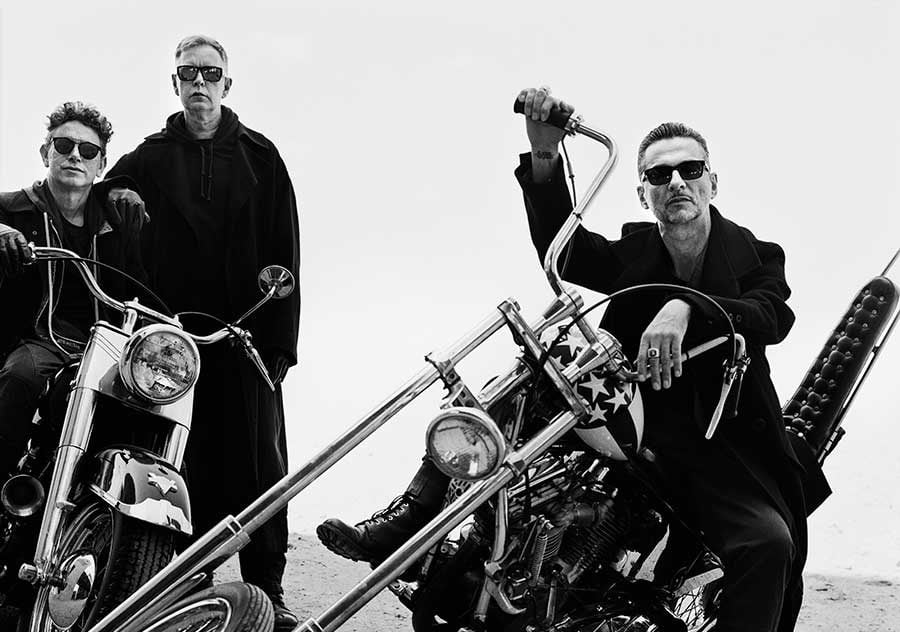
From then on Fletch’s input would diminish. Even when Vince Clarke departed soon into the Depeche Mode story, Andy couldn’t fill any playing duties as Alan Wilder arrived with classical keyboard skills. Songwriting duties? No chance – it just so happened Gore could write as successful songs as Vince.
And even when the band needed backing vocals and a lead vocalist to take on songs not suited to Gahan – yep, bloody Martin Gore again. Already Fletch must have been questioning his role…
Studio finery
At this stage of the band’s history, there was some evidence that Andy could and did embrace the production side of the music, or at least take an equal role to the rest of the band in the studio.
“A lot of groups don’t have a say in the mix,” he told One… Two… Testing magazine in October 1985. “It’s just the big producer comes in and they have to go with what he says. With us we’re always in on the mix.”
And he certainly demonstrated a knowledge of the gear of the time when he talked about programming the band’s keyboards and percussion.
He also detailed how involved he was in the sampling process for the album Construction Time Again in a 1984 issue of Melody Maker: “We went down Brick Lane and just hit everything and then recorded it, took it back to the studio and put it into the keyboard.
“That’s how we made the track Pipeline. We were smashing corrugated iron and old cars.”
Yet there’s no doubt that Fletcher’s role on both the production and music sides of Depeche definitely dwindled over the following years, perhaps as Alan Wilder’s role increased and the use of external producers like Flood and Mark Bell became more common.
However, for a long time at the start of the band’s career, they were manager-less, so this was an obvious role for Fletch to fill, especially as the business and money side of the band started exploding.
“Because we didn’t have a manager the first 16 or 17 years,” he explained to Release magazine, “I used to basically take care of that side of things because I was interested in it: building relationships, getting on with people, being creative and working towards a goal.”
This experience would eventually give Fletch the skills to start his own record label – see the Toast Hawaii box – and while promoting it, the interviews he gave revealed some other creative traits he’d not become noted for in Depeche.
“When I sign someone, I give everything to them. I help with the songwriting, with their live performances, in the studio, with everything, [including] production.”
Of course, after decades in a band like Depeche Mode, you would expect him to have these kinds of skills, but it’s perhaps surprising to hear that he had enough confidence to share them with bands like Client, the main Toast Hawaii signing.
Bringing the pop
Fletcher also dabbled in DJ-ing in the 2000s, with occasional spots around Europe to promote his label. And by now you might be thinking that Andy had skills in many more areas than he was previously known for, but perhaps no particular mastery in any one of them – or at least compared to others in the Depeche family.
However, Andy’s most important role in the band was possibly about the most important aspect of Depeche Mode: the music.
While Martin Gore and Dave Gahan explored more guitar, blues and rock influences on later albums, Fletch would keep the core of the music on an even electronic pop keel.
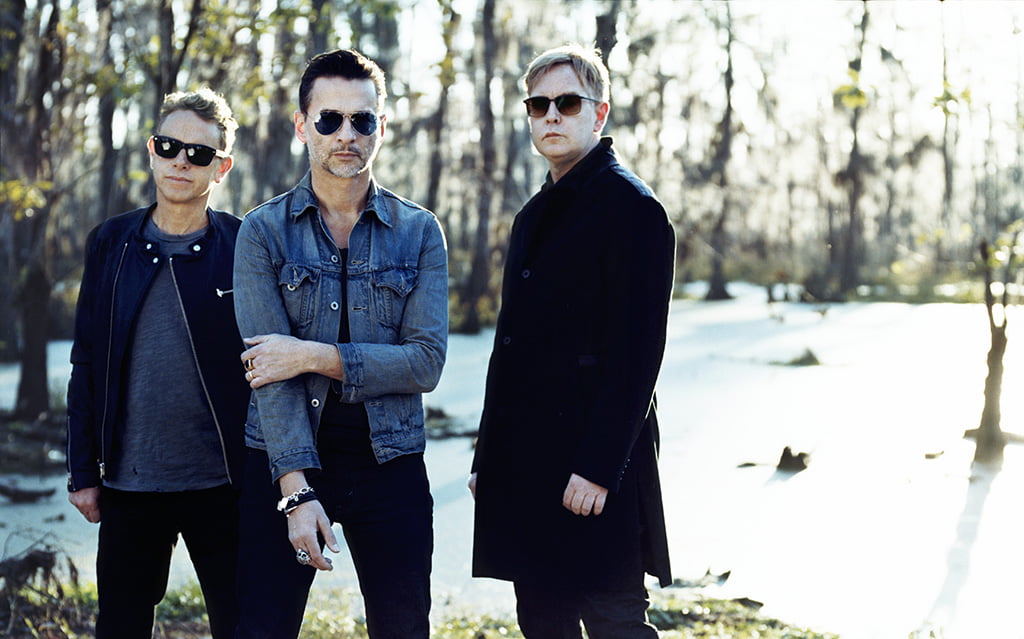
And it was an opinion he would keep throughout the band’s career. “I love synth-pop,” he told UTV in 2011. “I think it was a great time in music where bands sounded different and there were great pop songs.”
Then, in his most revealing interview, to German newspaper Die Welt in 2013, he took this further: “Within the band, I contribute the element of pop. Martin L Gore, who writes most of the songs, loves American blues and country.
“And Dave has discovered jazz for himself. I, however, will probably eternally feel loyal to the simple pop melodies and the lightness they stand for.”
So have we finally found what Andy Fletcher really bought to Depeche Mode: the ‘pop’ in synth-pop? Vince Clarke might have had the idea in the first place (“he ordered us to become an electronic band – we all had to buy synthesizers!” Andy told Consequence Of Sound), but was it left to Andy to carry the electronic pop flag?
It’s certainly an interesting notion, and has since been at least partially confirmed by Dave and Martin. As recently as February 2023, Martin told French TV channel TMC that “sometimes if we got a little too artistic, he [Andy] would put us in our place”, with Dave adding: “Fletch would be the voice when we were working on something in the studio that would say if we were going too far away from something with the sound.”
World in my eyes
And finally we leave it up to Andy to tell the world – okay, Die Welt again – what he thought his role was in the band. In the same interview, Fletcher finally displayed a rare show of frustration – in public, at least – at being singled out as the member of Depeche Mode who did the least.
“The contribution of each individual remains invisible,” he noted. “And because I don’t push myself to the fore, many mistake me for the fifth wheel. Sometimes it’s frustrating not to be taken seriously. After all, you could also say my job is the most important; without me there would be no band anymore.”
It’s a sad statement on a number of levels: firstly that Fletch was even occasionally bothered by what people thought and, of course, that this last quote would ever have to be tested.
But tested it was when Fletch passed away last year. There is still a band, but sadly he is no longer part of it. One thing is certain, though: Andy Fletcher certainly relished every day of being in Depeche Mode…
“Maybe the biggest moment is just here, now,” he told the Hot Press website in 2017. “I could say playing the Rose Bowl or something, but I just think it’s incredible that it seems like Depeche Mode are as popular as ever.
“We had an absolute dream career… at least, if you take out those years that were a bit messy. We lead normal lives, and we’re not celebrities. So it’s a great situation. I’d like to think that now, really, is the best moment.”
“It’s been like one big dream,” he told Release. “You wanna pinch yourself and when you wake up I’m still working for that insurance company I was working with when I was 18. We’re very fortunate that this dream continues.”
Ultimately, while Fletch was the first to undermine his own role and usually laugh along with the critics, maybe the fact was that he simply had to take a back seat.
Put yourself in his shoes: you’re sharing the stage – literally – with one of the best songwriters of our generation, and a singer who has developed not only some of the most distinctive vocals, but become one of the most charismatic frontmen of the last four decades.
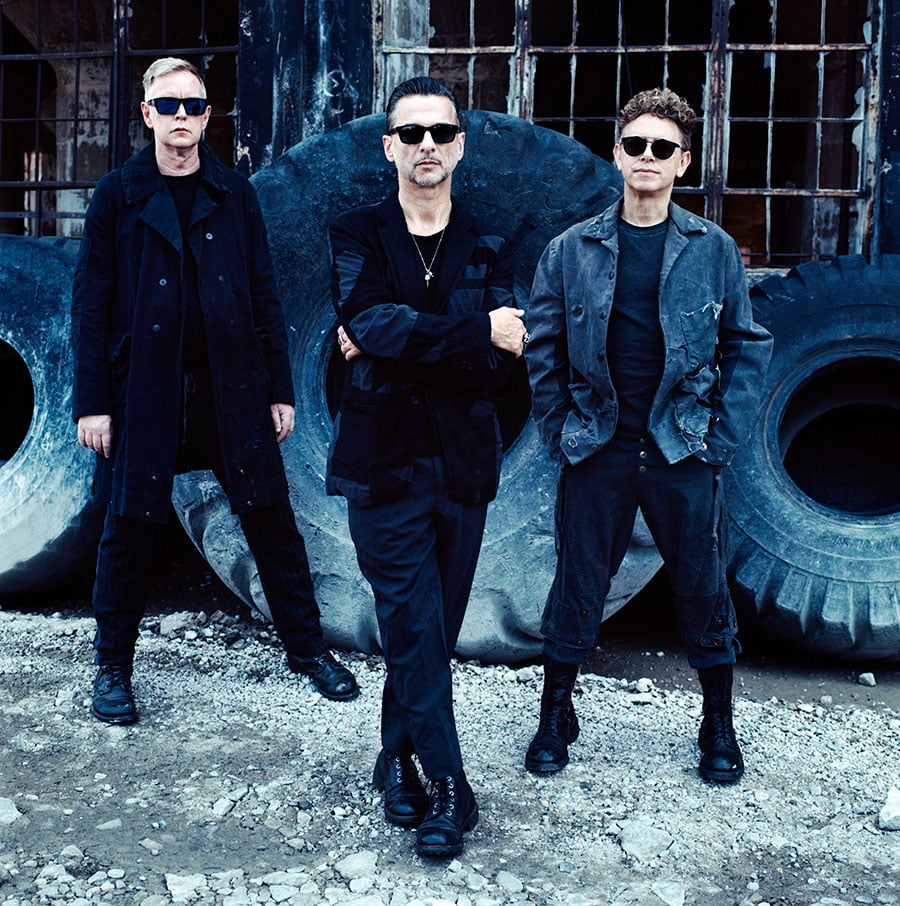
So while Fletch most certainly had some skills in songwriting, studio production, playing bass, guitar and keyboards, plus a vast knowledge of the music business, he probably didn’t really have a lot of choice but to keep a lid on most of it.
What are you going to do when surrounded by such icons? We know what we’d do. Exactly what Fletch did. He might have largely taken the back seat, but he most certainly enjoyed the ride.
- Want more from Classic Pop magazine? Get a free digital issue when you sign up to our newsletter!
Classic Pop may earn commission from the links on this page, but we only feature products we think you will enjoy.

